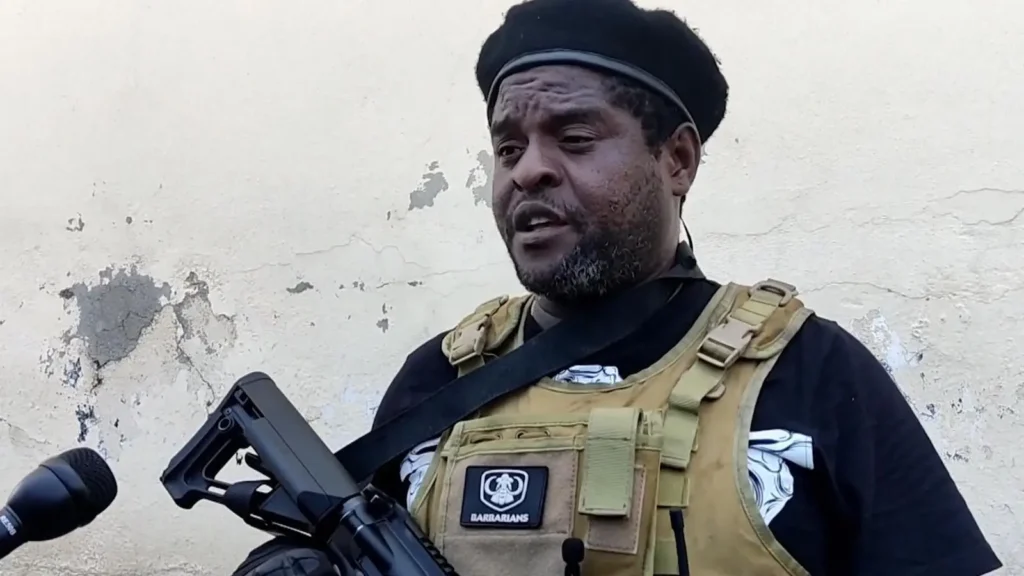Haiti has welcomed the first contingent of Kenyan police, nearly two years after the Caribbean nation sought international assistance to address the rise in gang violence.
Around two hundred police officers from Kenya arrived in Port-au-Prince on Tuesday, June 25. The main international airport has recently reopened after it had been closed for almost three months due to gang activity.
The specific tasks for the newly arrived Kenyans have not been disclosed. However, they are expected to confront violent gangs that dominate 80% of Haiti’s capital.
These gangs have displaced over 580,000 people nationwide as they loot neighborhoods to expand their territories.
This deployment represents the fourth major foreign intervention in Haiti. While some Haitians view the presence of the Kenyan police as a positive step, others approach it with skepticism.
Memories linger of the previous UN peacekeeping mission from 2004 to 2017, which faced allegations of sexual assault and introduced cholera to the country.
Romain Le Cour, a senior expert at the Global Initiative Against Transnational Organized Crime, emphasized the need for transparency from international and government officials regarding the mission’s strategy and rules of engagement.
“We haven’t heard about a proper strategy about the mission on the ground, what is going to happen vis-a-vis the gangs,” Le Cour said.
“Is it a static mission? Is it a moving mission? All those details are still missing, and I think it’s about time that there’s actually transparency.”
Romain Le Cour
The arrival of the Kenyan police follows nearly four months of intensified gang attacks targeting key government infrastructure in Haiti’s capital and beyond.
Gangs have taken control of more than two dozen police stations, attacked the main international airport, and stormed the country’s two largest prisons, freeing over 4,000 inmates.
“We’ve been asking for security for the longest time,” said Orgline Bossicot, a 47-year-old mother of two who sells carrots and charcoal as a wholesale distributor. Gang violence has significantly affected her business, and she fears for her safety daily.
“You don’t know who’s waiting for you around the corner. We are a target,” she said, expressing hope that the Kenyan police will collaborate effectively with local authorities.
“It would be a great step forward for me, for Haiti, and for a lot of people.”
Critics argue that the coordinated gang attacks, which began on February 29, could have been prevented if the foreign force had been deployed sooner.
However, various setbacks, including a legal challenge in Kenya and political turmoil in Haiti, delayed their arrival.
The gang attacks succeeded in preventing then-Prime Minister Ariel Henry from returning to Haiti. He was in Kenya at the time to advocate for the deployment of foreign forces but resigned in late April amid escalating violence.
Since then, Haiti has formed a nine-member transitional presidential council, which appointed former UN official Garry Conille as Prime Minister on May 28 and introduced a new Cabinet in mid-June. Despite these leadership changes, gang violence has continued unabated.
“It’s hard to assess what is going to be the attitude of the gangs vis-a-vis the (mission),” Le Cour commented.
“It’s probably fair to say there won’t be a homogenous response from the gangs. Some of them might fight. Some of them might want to negotiate and open dialogue with the Haitian government.”
Romain Le Cour
Gang Leader Calls For Dialogue
In a recent video, Jimmy Chérizier, a former elite police officer now leading a powerful gang federation called G9 Family and Allies, addressed the new Prime Minister for the first time.

“You did not distribute weapons in working-class neighborhoods,” said Chérizier, known as Barbecue.
“Do not play into the hands of traditional politicians and businessmen, who used violence for political and economic ends, and who now want to recover, by force, the weapons they had distributed. The problem that exists today can only be resolved through dialogue.”
Jimmy Chérizier
The Kenyan police will be joined by officers from the Bahamas, Bangladesh, Barbados, Benin, Chad, and Jamaica.
The UN Security Council approved a phased deployment totaling 2,500 officers at an annual cost of approximately $600 million.
READ ALSO: BoG Rebuts Claims of $8bn Loss Through Remittances



















